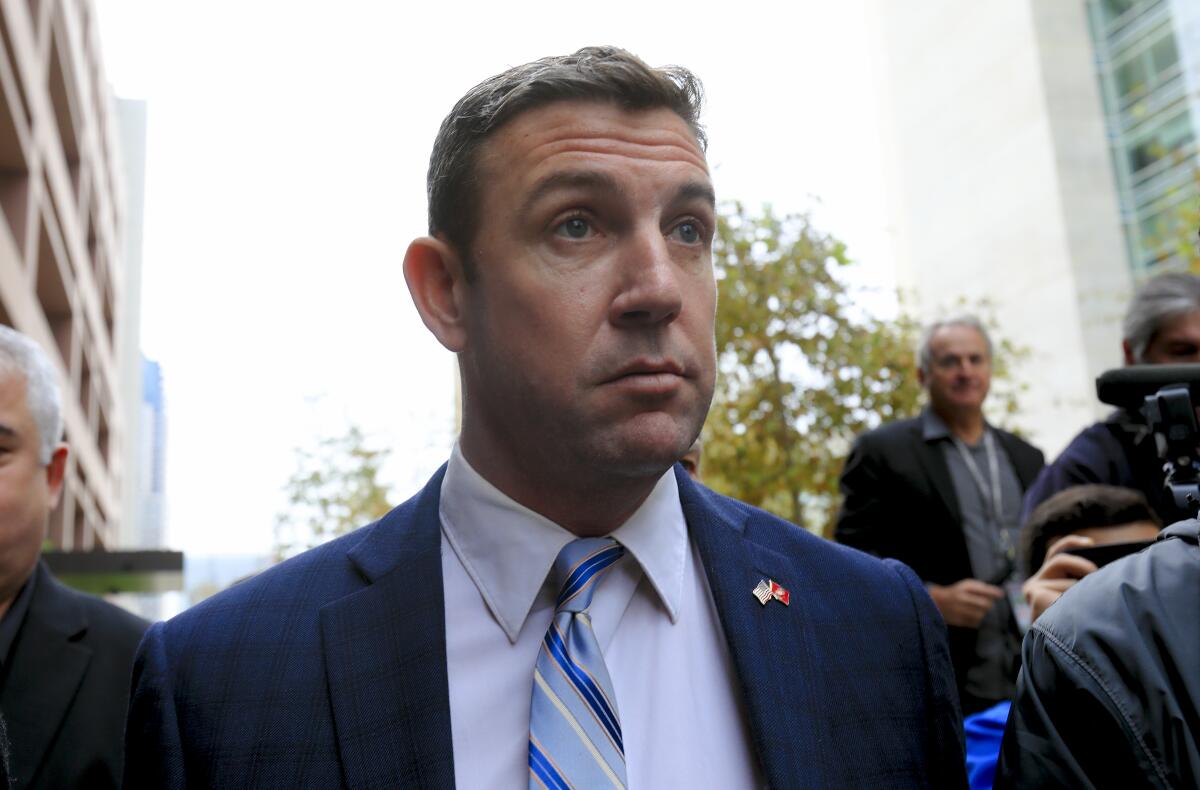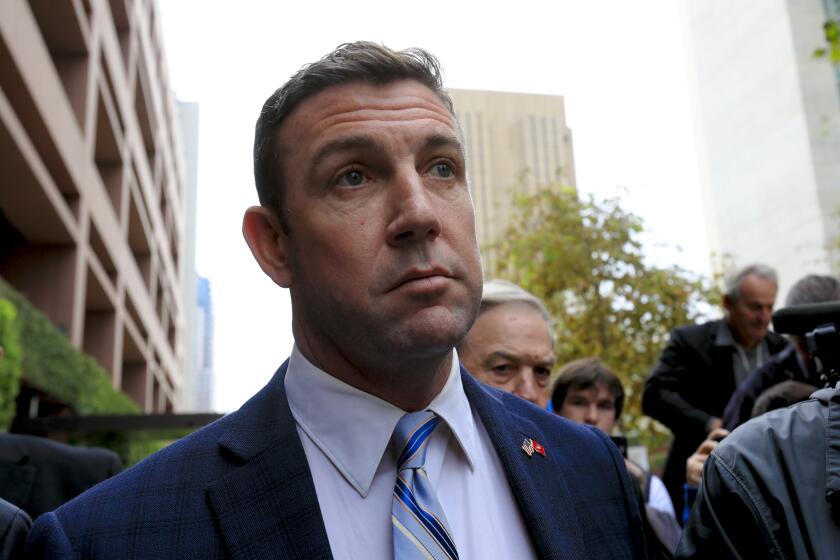Rep. Duncan Hunter’s seat in Congress will sit vacant, as governor says no to special election

- Share via
SAN DIEGO — Gov. Gavin Newsom’s office said Wednesday that a special election would not be called to fill the congressional seat that will be vacated when Rep. Duncan Hunter resigns from office Monday.
“The Governor’s Office received Rep. Hunter’s resignation letter. Based on the timing of the resignation, a special election will not be called,” Newsom spokeswoman Vicky Waters said by email.
The 50th Congressional District — which includes much of San Diego County’s eastern and northern regions and a small portion of Riverside County — will be without a representative until next January.
Hunter (R-Alpine), who was elected to office in 2008, was indicted in August 2018 on 60 federal counts alleging that he and his wife and former campaign manager, Margaret Hunter, stole $250,000 in campaign funds, using it for family vacations, groceries, his extramarital affairs and other non-campaign uses, including airfare for a pet rabbit.
The congressman, 43, reached a deal and pleaded guilty Dec. 3 to a single count of conspiracy to convert campaign funds to personal use, a felony for which he could be sentenced to up to five years in prison. On Tuesday, he set the date for stepping down.
Because Hunter did not resign until after the 2020 filing deadline, which was in early December, Newsom had option of leaving the seat vacant until after the November general election.
California Rep. Duncan Hunter has submitted his resignation effective Monday to Speaker Nancy Pelosi (D-San Francisco) and Gov. Gavin Newsom.
Because Hunter resigned so late and close to the state’s March 3 primary, it also made it increasingly difficult for a special election to be conducted or for the special election to be consolidated with the primary. It is not clear whether that influenced Newsom’s decision.
The San Diego County Registrar of Voters has been finalizing proofs of the March ballot this week, and federal law dictates that overseas military ballots go out next week.
The timing of the resignation also would posed challenges if the California secretary of state and the registrar’s office were to conduct a special election separate from the primary.
State law mandates a relatively narrow window in which a special election can be conducted. In this case, the final special election would have needed to be held in late May or early June, but a primary for the race would also have needed to occur before that — probably on a Tuesday in March after the statewide primary.
No member of Congress has been known to have their pension benefits taken away, and legal and policy experts doubt Hunter’s felony offense will warrant him being the first.
In the case of either a consolidated election or a special election, voters would have received mail ballots for both the primary and special election around the same time, which could cause confusion.
Voter registration in the 50th Congressional District strongly favors Republicans. There are 141,853 registered Republicans, compared with 101,927 registered Democrats and 91,946 voters who registered with no party preference.
The week he pleaded guilty, Hunter issued a statement in the form of a staged interview with friendly television station KUSI. “I’m confident that the transition will be a good one,” he said. “My office is going to remain open. I’ve got a great staff. We’re going handle people’s cases and pass it off to whoever takes this seat next. And we’ll make sure that’s a seamless transition.”
Clark writes for the San Diego Union-Tribune.
More to Read
Get the L.A. Times Politics newsletter
Deeply reported insights into legislation, politics and policy from Sacramento, Washington and beyond. In your inbox twice per week.
You may occasionally receive promotional content from the Los Angeles Times.












